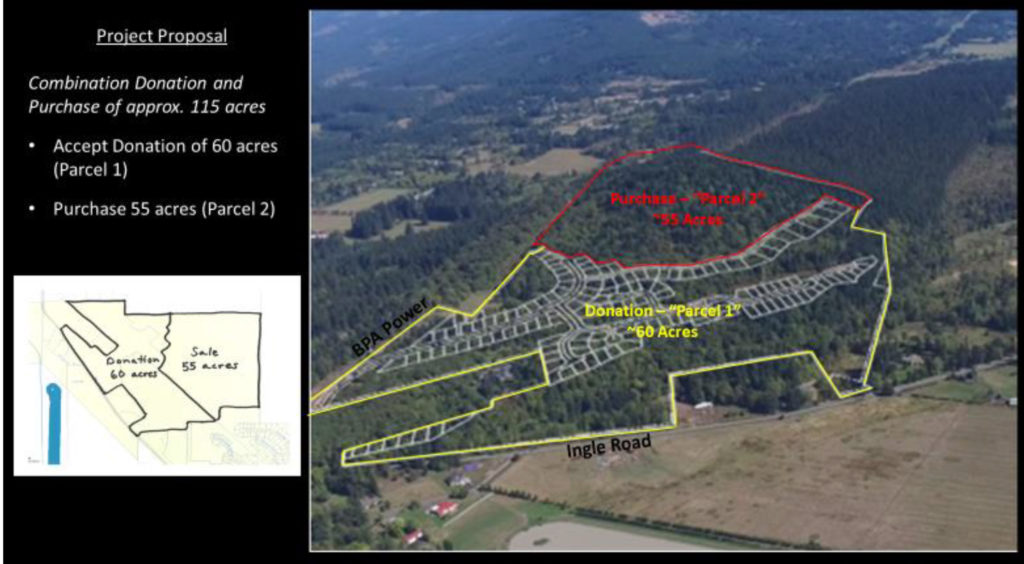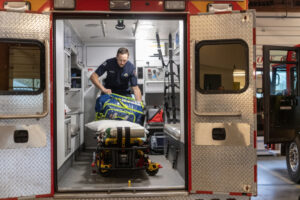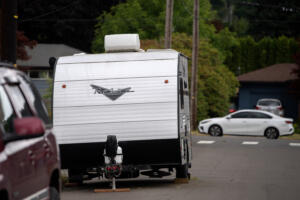Camas City Council members have agreed to move forward with a land deal that will add 115 acres of undeveloped Green Mountain land to the city’s inventory despite an 11th-hour ask that threatened to derail negotiations.
City councilors met with Camas Mayor Barry McDonnell, city attorney Shawn MacPherson and Camas Public Works Director Steve Wall in a special Zoom session on Dec. 30 to discuss a last-minute addition that will limit more than half of the 115 acres to conservation uses only.





